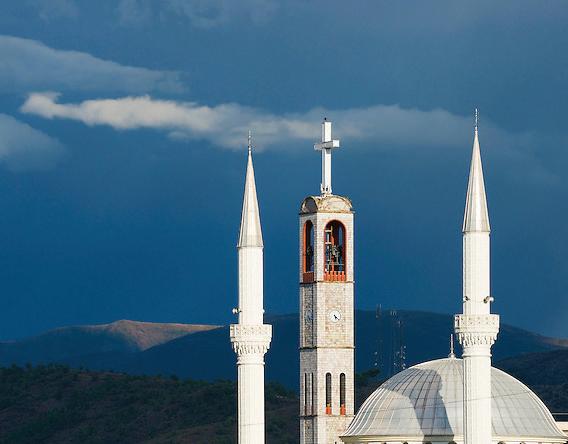
2 minute read
INTERFAITH FIXES WHEN THINGS FALL APART
Ihave a strong conviction that God compiles and orders my reading list. My wife is not so convinced but gives me the benefit of the doubt every time I return from my local Oxfam with just another few for the shelves. I felt God’s influence not long ago. After a conversation with a Catholic friend revealed a shared heart for ecumenism, a book called For God’s Sake…Unity: an ecumenical voyage with the Iona Community appeared before my eyes while browsing the aforementioned charity bookshop. God was at play – part librarian, part-bibliotherapist – while I was editing this edition, which sharply draws into focus issues of dominance in apologeticmissional relationships and the theology that underpins the desire to convert. As part of my preparation for hosting a seminar on the theme ‘Mission is Racist’ at the recent Baptist Assembly (do turn to Natalia-Nana’s column on page 19 for her considered response to a challenging afternoon), I read Chinua Achebe’s Things Fall Apart for the first time.
With a BA and MA in English Literature, I bridle with shame at that admission. It calls to mind a story I heard Professor Anthony G. Reddie tell recently. Professor Reddie, the director of the Oxford Centre for Religion and Culture at Oxford University’s Regent’s Park College, explained that when he was in the sixth form, a well-meaning teacher handed him Achebe’s masterpiece with the words, ‘this is an important book for you to read’. Professor Reddie was one of just two black teens in the class and remembers thinking, ‘why is it only an important book for me to read and not everyone else?’
Advertisement
In Things Fall Apart, Achebe’s fictional Nigerian village of Umuofia disintegrates in the face of exposure to the twin powers of the colonisers and their Christianity: the Igbo belief system is disempowered; internecine conflict is generated; and the colonial government establishes an administration which protects the converts and harasses the resistors. Clansman Obierika – the thoughtful, intellectual counterpoint to the warrior Okonkwo, whose life is central to the book –articulates the Igbo voice of the indigenous peoples: “The white man is very clever. He came quietly and peaceably with his religion. We were amused at his foolishness and allowed him to stay. Now he has won our brothers, and our clan no longer act like one. He has put a knife on the things that held us together and we have fallen apart.”
Such strength of feeling followed my reading, this time in the Welsh novelist Carys Davies’ The Mission House, set in a fictionalised version of Udhagamandalam (once Ooty), a town in the Western Ghats mountains, in the southern Indian state of Tamil Nadu. Established as a British Raj summer resort, the echoes of colonialism and its white man’s religion sound a constant note of threat that pulses the plot towards its violent conclusion: “the foreign missionaries…are mostly to blame with their hundreds of years of forcing the story of Jesus Christ down people’s throats, displacing the rightful gods. They had always been sneakier than the Muslims. Islam had always favoured the sword but the Christians, with their offers of education and food and shelter, had always been sneaky.”
Kang-San Tan and Benno van den Toren pay heed to that antagonism towards materially-induced evangelism and conversion in their essay on the missiological motivations of apologetics, “If missions in the past have sometimes used power and manipulation, thus producing what can be called “rice Christians”, the church should repent from it.”
I bear the scars of time spent working for the apologetics outfit, once known in the UK as the Zacharias Trust. And yet I am encouraged by the honesty and humility behind this call to repentance. Tan and Van den Toren are clear that “embodied apologetic witness demands that these dark sides of Christian history are recognised, and the Christian community shows a genuine repentance and desire to be a healing presence.” Amen to that.
Matty Fearon was born in Abergavenny to Scouse Catholic parents. After a career in sports and news journalism that took in stints in Russia, India and across the UK, he made the inevitable move to the Christian charity sector in 2019. This is his third issue as Mission Catalyst editor.










